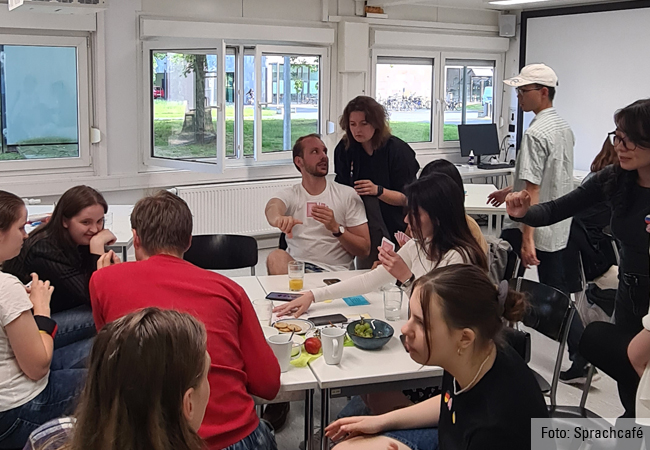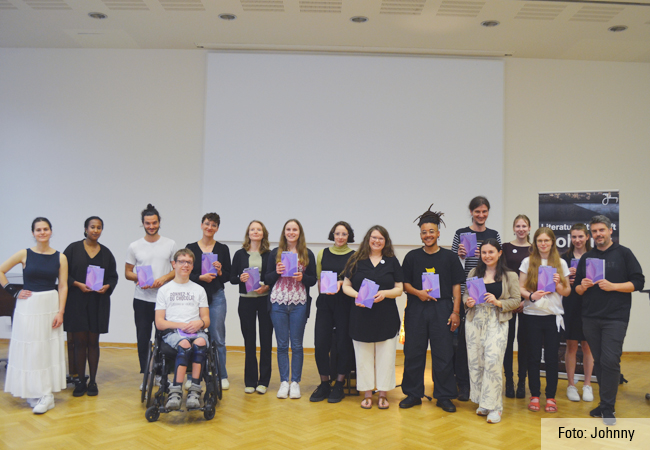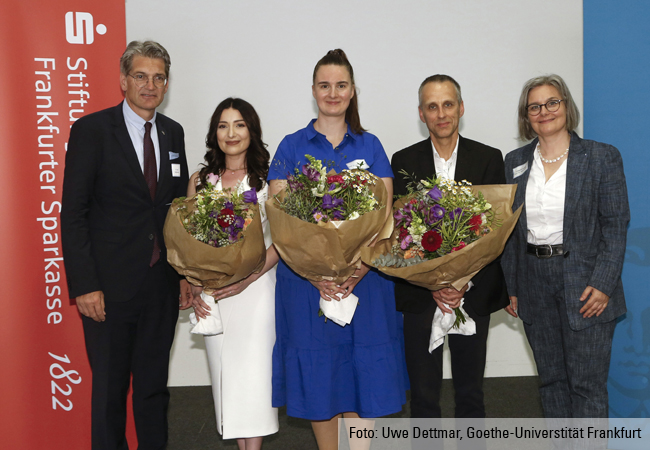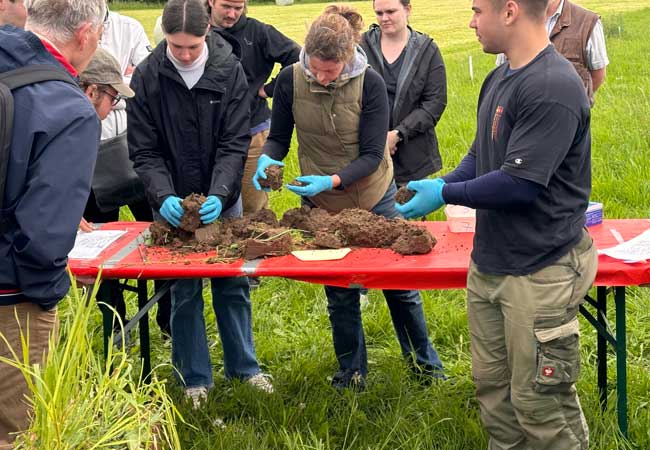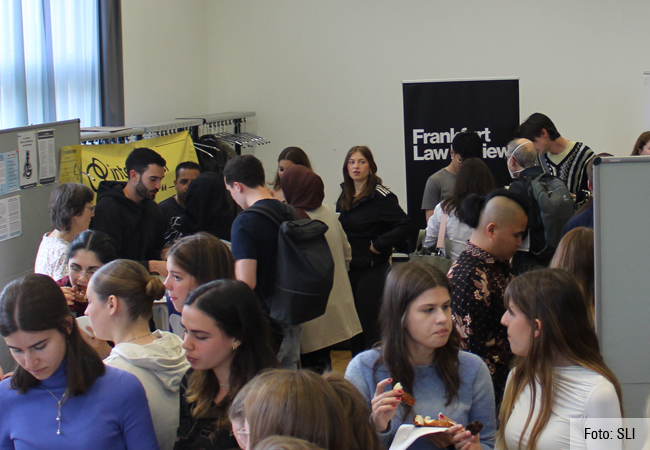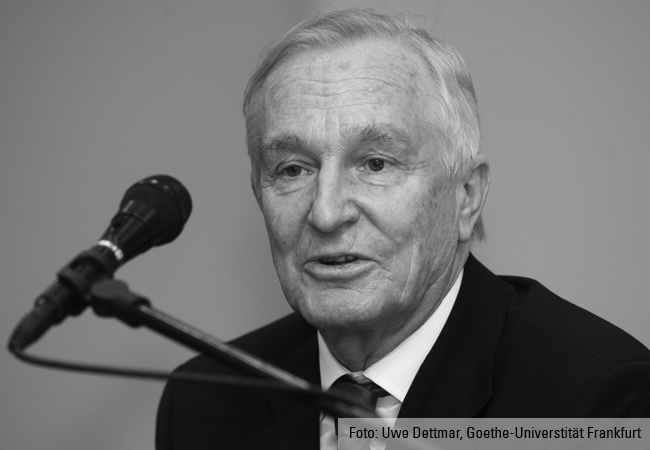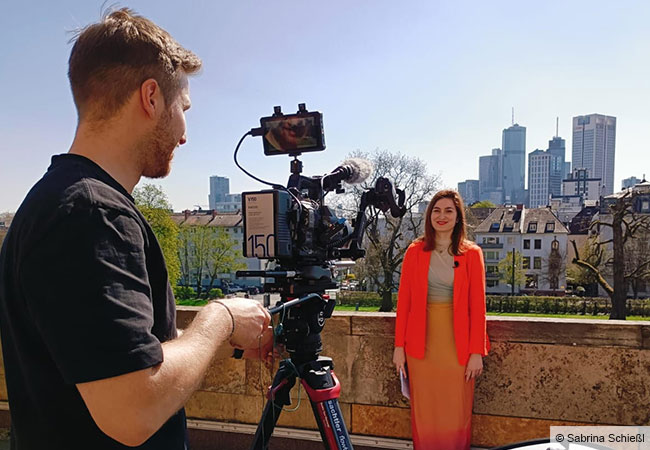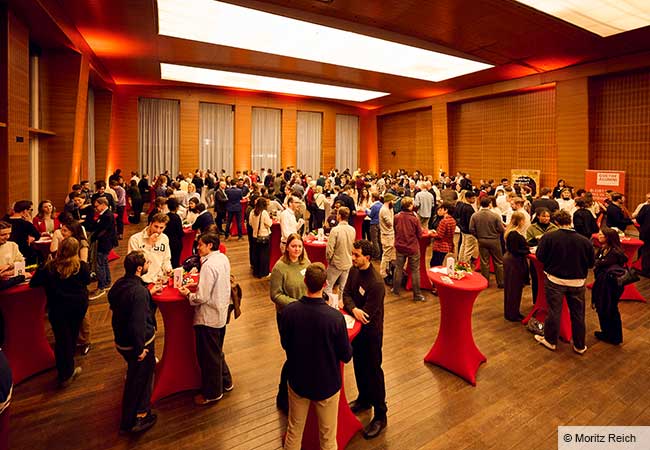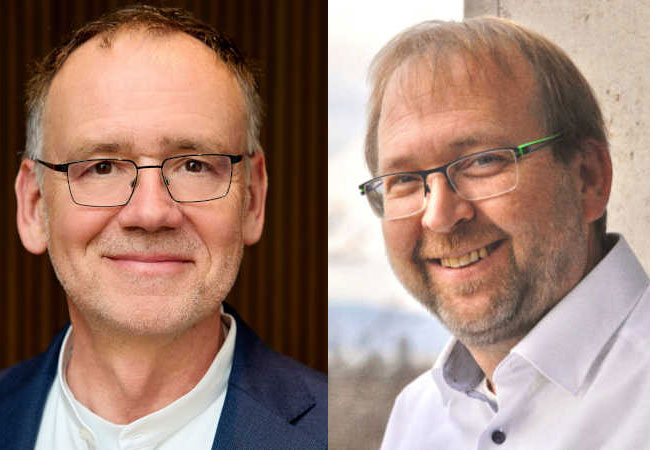In June, the Student Polyclinic of Goethe University Frankfurt, part of Frankfurt Health Department, celebrated its 10th anniversary. It became clear at the anniversary celebrations that this initiative has helped many people – both patients and prospective doctors.
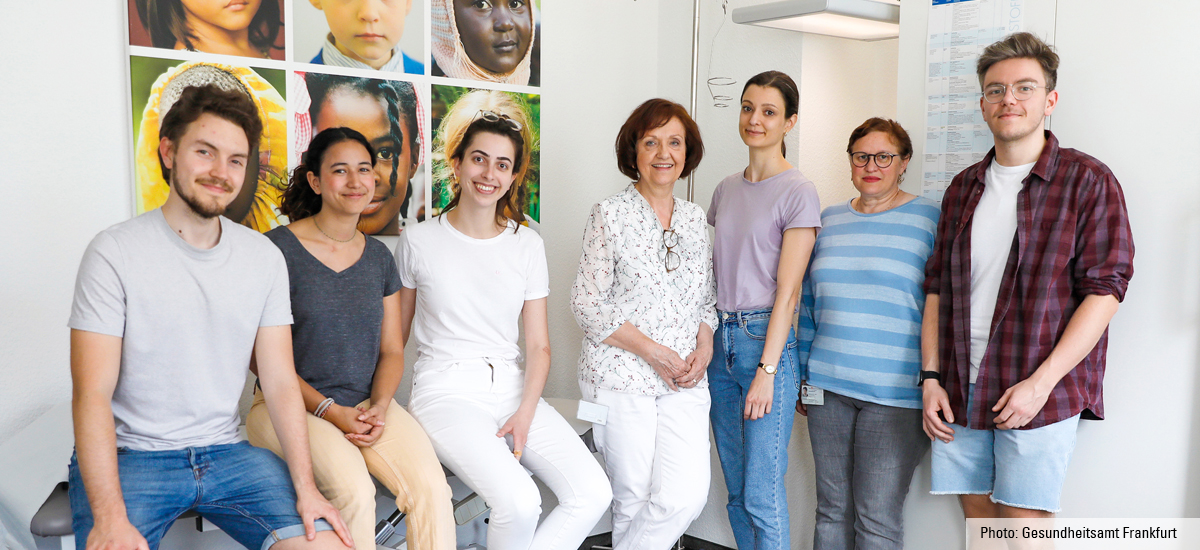
As a student, Professor Robert Sader would have welcomed such a compulsory elective: “When I was at university some 40 years ago, medical teaching was very theoretical, and we did not really come into contact with patients until the final year,” recalls Sader, director of the Department of Oral, Cranio-Maxillofacial and Facial Plastic Surgery at Frankfurt University Hospital, in an interview to mark the polyclinic’s anniversary. It was Professor Helmut Wicht, an anatomist in Frankfurt, who had the idea for the Faculty of Medicine to help treat people in need. Sader, Dean of Studies at that time, pursued the idea and developed it further together with students. Having successfully overcome the one obstacle or another – also with the help of Frankfurt Health Department – the Student Polyclinic started work on June 17, 2014, as the first service of its kind nationwide. Since then, many patients have been treated here who are only entitled to medical care in acute cases because they do not have health insurance. And as far as the students are concerned, the Student Polyclinic offers them the opportunity to work as doctors under supervision during their studies. Special recognition for the clinic was the award by Boris Rhein, then Minister of Science, in 2017 of the Hessian University Prize for Excellence in Teaching, worth € 60,000.
Valuable change of perspective
“In fact, every prospective doctor should experience this,” said Professor Miriam Rüsseler, Dean of Studies, at the anniversary celebrations. As a professor of medical didactics and clinical simulation, she sees the Student Polyclinic’s services as an “incredible step that has changed university studies enormously”. The change of perspective that can be experienced here is particularly valuable, she said, students not only consciously experience how it is to work on their own authority but also themselves in an unfamiliar environment.
“That the students can already gain extensive practical experience during their medical degree benefits the people in Frankfurt, patients and, of course, the students themselves. Thank you very much for ten years of the Student Polyclinic. It is a remarkable project,” said associate professor Dr. Peter Tinnemann, head of Frankfurt Health Department, praising the clinic. Elke Voitl, councilor for health and social affairs in Frankfurt, positioned the Student Polyclinic in the context of society as a whole. Health is the prerequisite for participation, she said. By treating people without health insurance – just like the City of Frankfurt’s Humanitarian Consultation Hour – the Student Polyclinic makes an important contribution to democracy, she added. “Without these services, our city would be less compassionate,” said Voitl.
Modeled on student-run free clinics
In a panel discussion charmingly chaired by students Petra Sporerova and Léon Lück, the participants looked back together at the early days. Dr. Lukas Seifert, one of the student initiators, recalled numerous meetings in the pub, which are still a tradition today. It was here that the idea for a consultation hour geared to citizens’ needs was born. At the time, there was nothing comparable in Europe. The student-run free clinics in the US served as a model, and a student delegation visited Harvard University, among other places, to gain an impression of the process and how to organize things. Professor Sader, who moved from Basel to Frankfurt in 2004, explained that two main obstacles stood in the way of the Student Polyclinic: The first problem was that of insurance law, which was solved firstly by accrediting Frankfurt Health Department as an academic teaching institution of the university and secondly by developing the Student Polyclinic as a clinical elective course and making it part of the degree program. The second problem was finding premises, but this, too, was solved with the help of Frankfurt Health Department. Sader stressed the importance of the Student Polyclinic for the personal development of future doctors. It is not true, he said, that Gen Z is lazy and generally unenthusiastic: “Sometimes a small spark can start a great fire.” According to former student Lukas Seifert, other disciplines have gradually been included, such as social work and psychotherapy. Although he himself now works as a surgeon, he has adopted the compassionate approach of the Student Polyclinic.
Medical supervisor from Day One
Dr. Petra Tiarks-Jungk has been a medical supervisor from the very beginning. She ran the Humanitarian Consultation Hour at the Student Polyclinic and gave the first cohort of students the opportunity to job shadow there. Her skepticism towards the quality of the students’ medical knowledge quickly evaporated, she said in the discussion with Lück and Sporerova: She was “absolutely thrilled” by their dedication and expertise. That is why she was happy to support the Student Polyclinic as a medical supervisor and still does today – even after retiring from professional life. “Dr. Tiarks-Jungk dispelled my fear that I might do something wrong,” attested Sporerova, who has helped out at the Student Polyclinic since the very start of her studies.
The students are not let loose on patients without further ado. Only after a semester and having successfully completed case seminars and a course on how to conduct medical examinations may they commence with practical work at the Student Polyclinic – accompanied by a “senior”, i.e. a student in a higher semester, and under a medical supervisor. The Student Polyclinic’s consultation hours are on Tuesdays from 5.00 to 7.00 p.m. and Wednesdays from 6.00 to 8.00 p.m. Two tandems of two students – a junior and a senior – examine the patients, note down their medical history, take blood samples or perform an ultrasound. They are often confronted with acute conditions, but also encounter chronic illnesses such as diabetes and high blood pressure. According to Robert Sader, quite a few polyclinic students have later decided to work in general practice. “Working at the Student Polyclinic has made me more interested in general practice,” confirms medical student Petra Sporerova from the current Student Polyclinic team. “Being able to help patients is a great feeling. They are so incredibly grateful,” she says.
Anke Sauter


